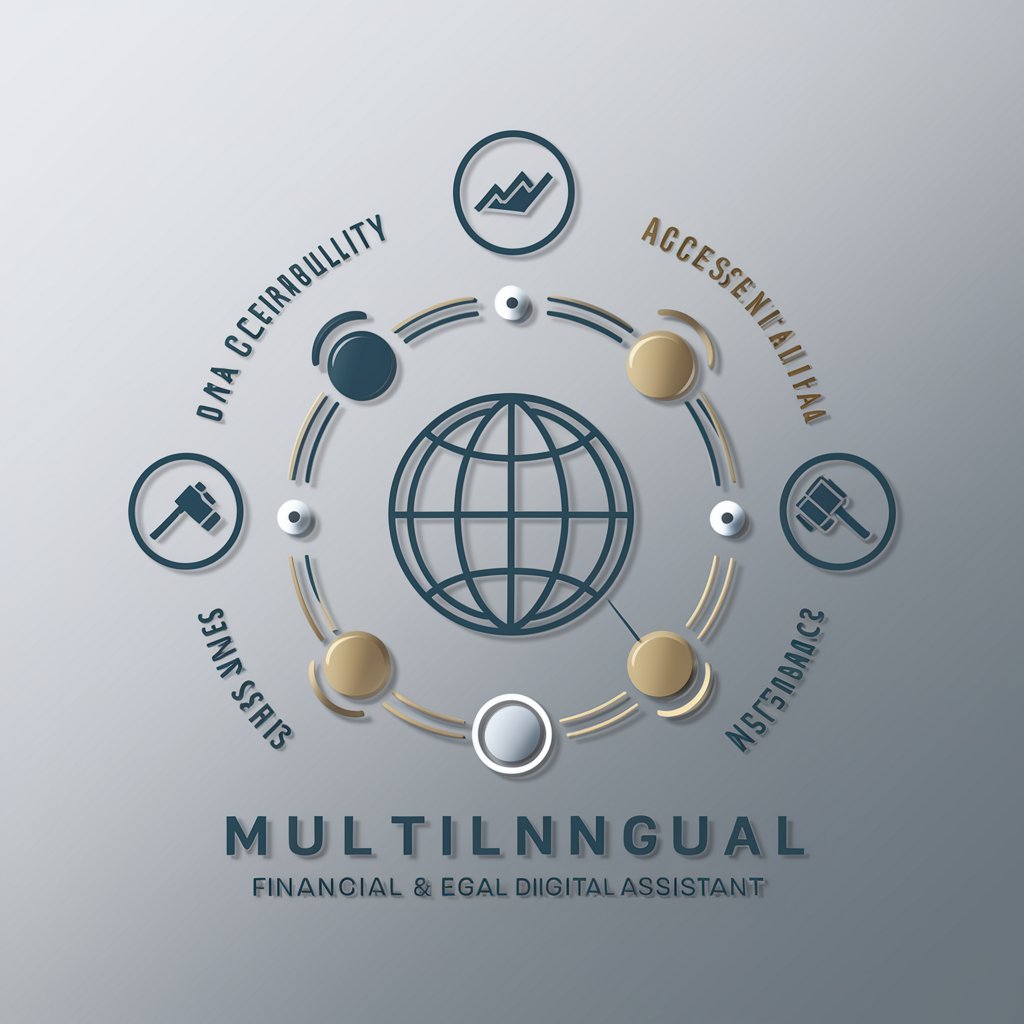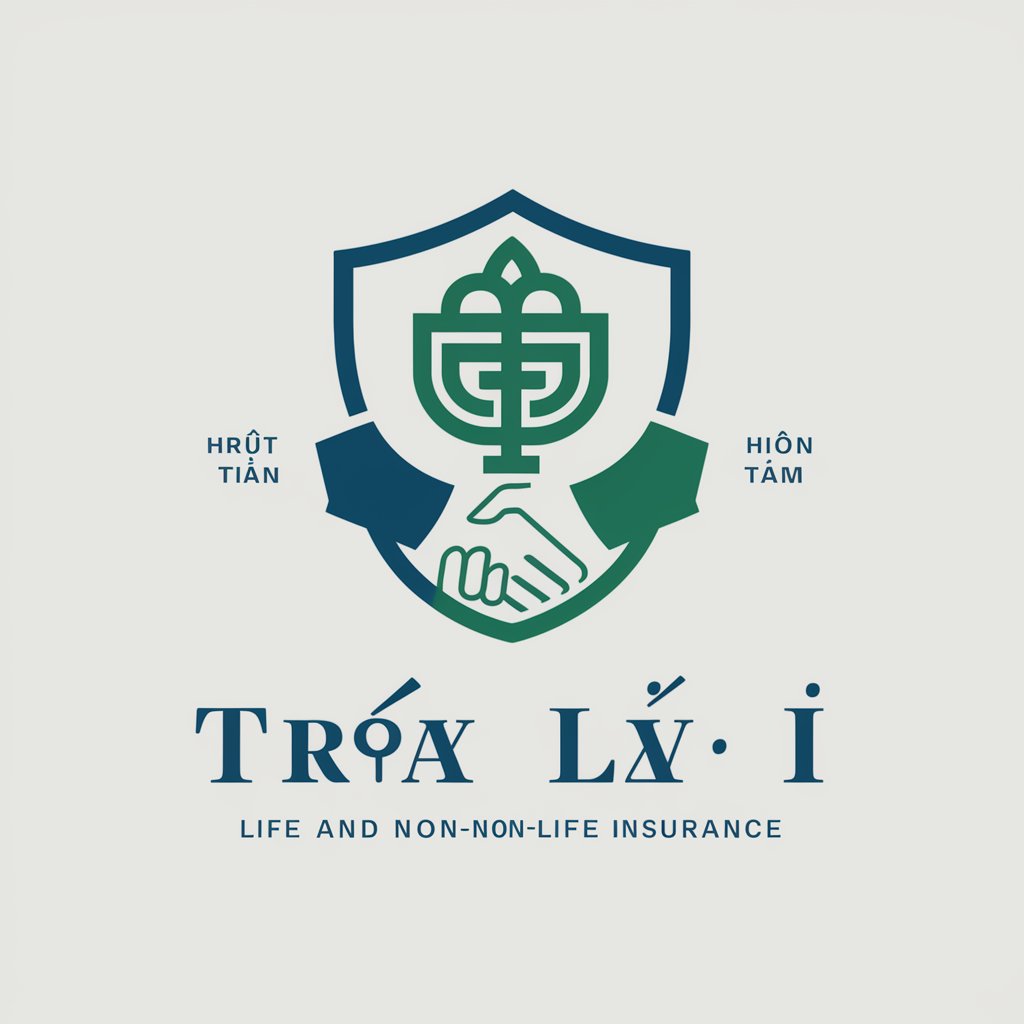13 GPTs for Insurance Advice Powered by AI for Free of 2025
AI GPTs for Insurance Advice are advanced tools designed to provide specialized guidance and solutions in the insurance sector. Leveraging Generative Pre-trained Transformers, these tools analyze and generate responses tailored to insurance-related queries. They streamline the process of obtaining insurance advice, making it easier and more efficient for users to get the information they need. By processing vast amounts of data, GPTs offer personalized advice, risk assessment, and policy recommendations, showcasing their significant role in revolutionizing the insurance advice landscape.
Top 10 GPTs for Insurance Advice are: Complete Veteran/Military Benefits Guide,ביטוח לאומי ישראל,UK Personal Tax Guide,Multilingual Financial and Legal Expert,Trợ lý I,Travel Advisor,Floyd Corner,Road Guru,HR Health Benefits Helper,Visa Assistant
Complete Veteran/Military Benefits Guide
Empowering Veterans with AI-Driven Support

ביטוח לאומי ישראל
Simplifying Israeli Insurance with AI

UK Personal Tax Guide
Navigating UK Tax with AI-Powered Precision

Multilingual Financial and Legal Expert
AI-Powered Multilingual Expertise in Finance and Law

Trợ lý I
Empowering Insurance Decisions with AI

Travel Advisor
AI-powered Personal Travel Assistant

Floyd Corner
Demystifying Car Insurance with AI

Road Guru
Navigate the road smarter with AI-powered automotive advice.

HR Health Benefits Helper
Empowering benefits choices with AI

Visa Assistant
Navigating Visa Applications with AI

Car Choice Companion
Smart AI-powered Car Buying Assistant

Ai Affordable Car Insurance Baltimore.
Streamlining Car Insurance with AI

Cheap Car Insurance Detroit Ai Aid
AI-powered Car Insurance Assistance

Essential Attributes of AI GPTs in Insurance
AI GPTs for Insurance Advice boast adaptability, allowing them to cater to a wide range of functions, from answering basic queries to providing complex policy analysis. Key features include natural language understanding, enabling them to comprehend and respond to user inquiries accurately. They also offer technical support, web searching capabilities, and data analysis, ensuring comprehensive insurance advice. Some GPTs are equipped with image creation abilities, further enhancing their versatility in visual risk assessment and documentation.
Who Benefits from AI GPTs in Insurance
The primary users of AI GPTs for Insurance Advice include novices seeking straightforward insurance guidance, professionals requiring detailed risk assessments, and developers looking for customizable AI tools. These GPTs are accessible to those without programming skills, offering user-friendly interfaces, while also providing advanced customization options for tech-savvy individuals, thereby catering to a broad audience within the insurance domain.
Try Our other AI GPTs tools for Free
Astronomy
Explore the universe with AI GPTs for Astronomy: tailored tools for education, research, and exploration, designed to make celestial wonders accessible to all.
Fantasy Lore
Explore the magic of AI GPTs for Fantasy Lore, your ultimate tool for creating immersive fantasy worlds, characters, and narratives with ease and creativity.
Insurance Navigation
Discover how AI GPTs simplify Insurance Navigation, offering tailored advice, market insights, and user-friendly interfaces for informed decisions.
Character Matchups
Discover the power of AI GPTs for Character Matchups: innovative tools designed to predict and analyze fictional and historical character interactions with unparalleled depth and accuracy.
Fictional Battles
Explore the realm of AI GPTs for Fictional Battles, where creativity meets technology to simulate epic clashes between your favorite fictional characters. Perfect for fans and creators alike.
Digital Nomad
Explore AI GPT tools designed for digital nomads: tailor-made solutions for remote work, travel, and lifestyle management to enhance productivity and simplify your nomadic life.
Further Perspectives on AI GPTs in Insurance
AI GPTs for Insurance Advice not only offer tailored solutions but also feature user-friendly interfaces, making them accessible to a wider audience. Their adaptability allows for integration with existing systems, enhancing workflows and decision-making processes in the insurance sector. These insights underline the transformative potential of AI GPTs in providing innovative and efficient insurance advice.
Frequently Asked Questions
What is AI GPT for Insurance Advice?
AI GPT for Insurance Advice is a technology that uses AI to provide personalized advice, risk assessment, and policy recommendations in the insurance sector.
How can AI GPTs improve insurance advice?
They improve insurance advice by analyzing vast amounts of data to offer personalized recommendations and by using natural language processing to understand and respond to user inquiries.
Who can use AI GPTs for Insurance Advice?
They are designed for a wide range of users, from novices seeking basic advice to professionals and developers requiring advanced features.
Do I need coding skills to use AI GPTs for Insurance Advice?
No, these tools are designed to be accessible without programming knowledge, though they also offer customization options for those with technical expertise.
Can AI GPTs for Insurance Advice generate documents?
Yes, some AI GPTs are equipped with capabilities to generate documentation such as policy summaries and risk assessments.
Are AI GPTs for Insurance Advice customizable?
Yes, they offer various customization options, allowing developers to tailor the tool's functionalities to specific insurance advice needs.
How do AI GPTs for Insurance Advice handle privacy and data security?
AI GPTs are designed with robust security measures to protect user data and ensure privacy, adhering to relevant regulations in the insurance industry.
Can AI GPTs integrate with existing insurance systems?
Yes, they are often designed for easy integration with existing systems, enabling seamless workflow enhancement and data analysis.